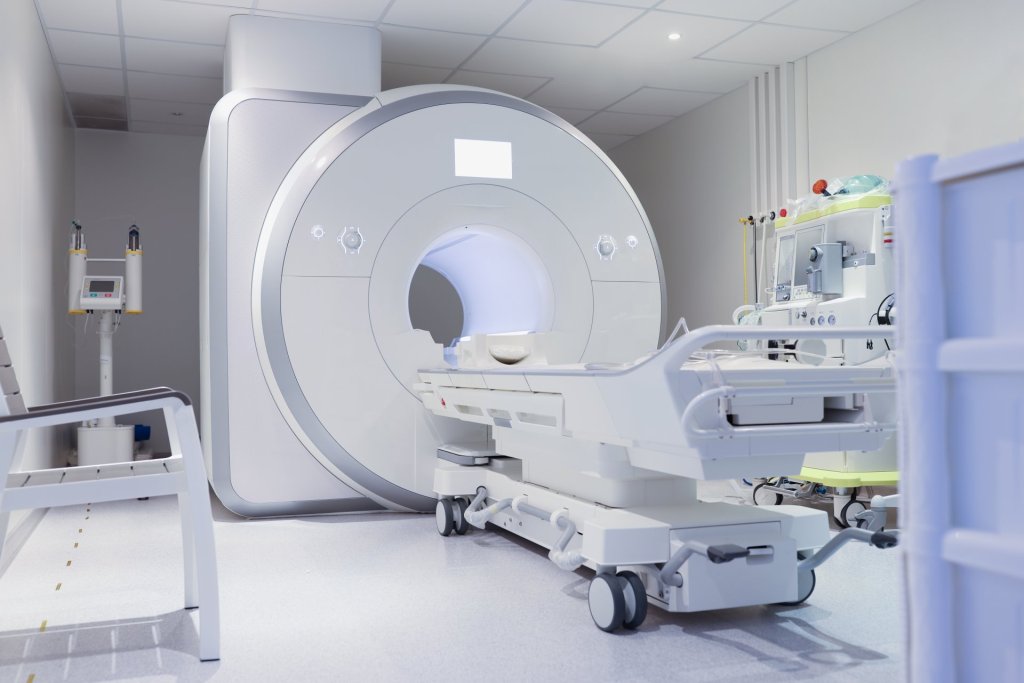Travel MRI tech jobs are available nationwide

Scope of practice
Travel MRI techs operate MRI machines, but they have a number of other responsibilities as well. These include:
- Preparing patients for scans
- Adjusting and maintaining imaging equipment
- Collaborating with nurses and doctors to find the right scanning location
- Positioning patients for MRI scans
- Using contrast media
- Operating imaging technology during scans
- Ensuring patients are safe and calm during scans
- Maintaining patient records
Travel MRI techs can work in hospital settings, imaging centers, and outpatient clinics. Each assignment generally lasts three months, though it’s possible to extend employment.

Required education and training
To become a travel MRI tech, you’ll need to have earned a high school diploma or its equivalent and pursue either an associate or a bachelor’s degree from a recognized MRI program. The degree must be in radiologic sciences, radiography, or nuclear medicine technology.
Once you complete your degree, you must pass the certification exam and get your credentials from either the American Registry of Radiologic Technologists or the Nuclear Medicine Technology Certification Board. Not all states require licensing, but most do, so it may be a good idea for you to pursue licensure.
To work as a travel MRI tech, you will need to have completed at least one year of work as an MRI tech. You can then apply to agencies that will put you in contact with prospective employers.

Travel MRI Tech salary and benefits
Your actual salary will depend on your training and experience. The amount will also depend on the states you work in, with wages varying significantly across the county.
Travel MRI techs also receive benefits from their agencies. These include travel and housing stipends, life and health insurance, some tuition reimbursement, and paid time off.
Travel MRI tech FAQs
North and South Dakota offer some of the highest travel MRI tech salaries, followed closely by Massachusetts and Alaska. On the opposite end of the spectrum, states such as Florida, Alabama, and Mississippi pay the lowest wages.
A travel MRI tech must be able to quickly adjust to new work settings. They need to be strong communicators, too, since they have to work with members of healthcare teams and direct patients to position them correctly for scans. Like all healthcare providers, they also have to be empathetic and able to educate patients on their procedures.
Travel MRI techs can take on temporary positions in hospitals, imaging centers, and clinics. Any healthcare location in which there is an MRI machine could be a potential workplace for a travel MRI tech.
To become a travel MRI tech, you need an associate or bachelor's degree in MRI technology or a related field, certification from ARRT or ARMRIT, at least 2-3 years of hands-on experience, and state-specific licenses for each assignment location.
Most travel MRI tech assignments last for about 13 weeks. This duration allows professionals to acclimate to new facilities and establish effective working relationships before moving on to their next assignment.

MRI Tech growth and job opportunities available nationwide
Travel MRI technology rewards both your wallet and your ambitions. Mix sharp clinical skills with a sense of adaptability, and healthcare facilities nationwide will welcome your expertise.
Ready for the challenge? Pursuring a travel healthcare career demands dedication, from education to certifications to hands-on experience. You'll be rewarded for your hard work with new adventures in dream destinations, personal and professional connections nationwide, and higher compensation.
Want more out of your career? Specialization and leadership roles open doors to growth. Extra certifications boost your value. Your expertise grows with every new facility and challenge.
Healthcare facilities across the country need skilled travel MRI techs now. Step into a field that values your talents, rewards your dedication, and grows with your dreams.
Begin your travel adventure with Prolink
Discover the world of opportunities awaiting you!
Complete the form to take the first step towards a fulfilling career.
When you partner with Prolink, you receive an industry-leading benefits package:
- Day-one health insurance and 401(k)
- Dental and vision coverage
- Short- and long-term disability
- Life insurance
- Exclusive perks and discounts
Apply for Your Next Position
Let us find your perfect fit. Connect with a recruiter today.






